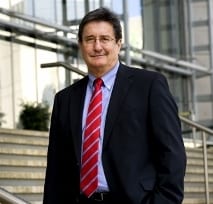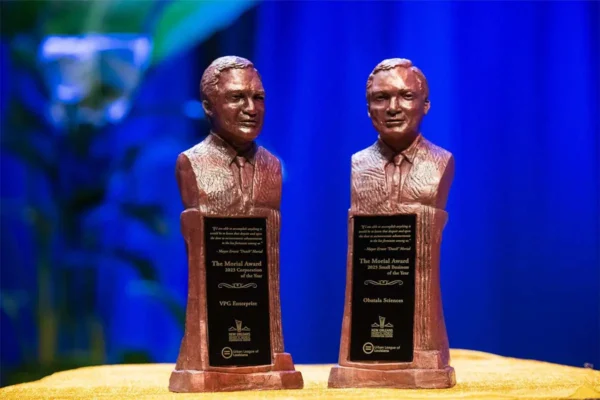Exhibit City News followed up with Geoff Donaghy, president, AIPC, on the success of this year’s International Association of Convention Centres (AIPC) Conference, held this past summer in Cape Town, South Africa.

AIPC, a member organization, recognizes excellence in convention center management based on the diverse experience and expertise of its international representation.
What were the main issues that emerged at the most recent AIPC Conference in Cape Town?
Measured in a comprehensive member performance and confidence survey in advance of the Conference, the single biggest issue remains the growing competition amongst convention centres today and how centres can best deal with this. A close second – and related – issue is the ongoing uncertainty associated with a slow and uneven economic recovery in many parts of the world and the impact this is having on both event business and the kind of investment needed to ensure centres remain competitive.
Do you think standards and accreditation are important for centres today? What benefits does accreditation provide?
The exact benefits depend on the audience. For owners – many of whom are governments, with little experience in the industry – it provides an independent measure of how a centre compares with others and creates some “comfort” that their investment is being well managed. For clients, it gives assurance that their needs will be met in a consistent and efficient way. For the centres themselves, it can be a form of benchmarking, which often is a challenge given the wide variety of conditions and circumstances centres operate under.
What standards program does AIPC offer members?
The AIPC Quality Standards program is a process-oriented set of management and operations criteria that specifically address all aspects of the centre operating, ownership, management and community interface, and participating centres are audited for the extent to which they comply with and/or exceed the criteria set out for each category.
Along with the Quality Standards program, AIPC also maintains standards and tools to support consistency in areas like economic impact calculation, and provides a way for centres to get feedback from clients through the detailed surveys that form a part of the AIPC Apex Award.
Does technology development continue to be a factor?
It does, in three areas: First, the use of on-site technologies to facilitate more efficient operations, such as registration, distribution of support materials and event updates; secondly, the ability to enhance sessions through devices that enable greater audience participation and more sophisticated presentations, and thirdly, delegate interactive elements like social media and locating devices for participants. The latter is very interesting because, properly used, it can extend the life of the meeting considerably pre- and post-event as well as enable participants to interact more effectively with like-minded delegates and create special-interest groups that can plan in advance, follow up long after the event and even create sub-components at the event itself.
Do you see a trend towards live-conferences as a substitute to the participation at the congress?
The greatest impact we have seen so far is the expansion of an event’s “reach” via what are referred to as “hybrid events” or a combination of a live, on-site component with elements that are also accessible online from other locations. So far, these have been seen as largely positive because they expand the total audience and can even generate future live event attendance because what remote participants see encourages them to want to participate in person the next time.
Are environmental/sustainability concerns still a big factor for centres and their clients?
Sustainability is now a reality in the industry; not so much a topic of debate because it is taken for granted. Convention centres are far ahead in this regard because they have always had a number of different groups to satisfy; not just clients but also owners – often governments – and communities who also wanted to see greater attention to environmental standards. One of our recent surveys showed that extensive environmental policies and programs are now in place at well over 90 percent of member centres worldwide, and this means it is easier for clients to access what they need for greening their meetings.
What other issues are out there that you see gaining in importance?
With finances tight all around, I think the biggest pre-occupation everyone has today is how to make the financial equation work better for all concerned. Many organizers have less in the way of resources and need additional value as well as more on-site help; on the other hand, centres – particularly those owned by governments – are less able to absorb the additional costs and/or reduce rental and service rates. Everyone needs to work together on greater value and efficiency as well as to be prepared to look at new ways to share risks and rewards if the industry is to be able to continue to deliver what the delegates want and the participating organizations need.
What will be your priorities as President?
I want to specifically address two areas that I think are increasingly important; first, to deliver more program activities in different parts of the world in order to reflect the wide distribution of our membership; and secondly, to aggressively pursue a higher profile for the role of centres as economic drivers for their respective communities and facilitators of essential business and professional interactions around the world.
Geoff Donaghy is AIPC President, CEO of International Convention Centre Sydney and Director Convention Centres, AEG Ogden.
For more information, visit www.aipc.org.





























